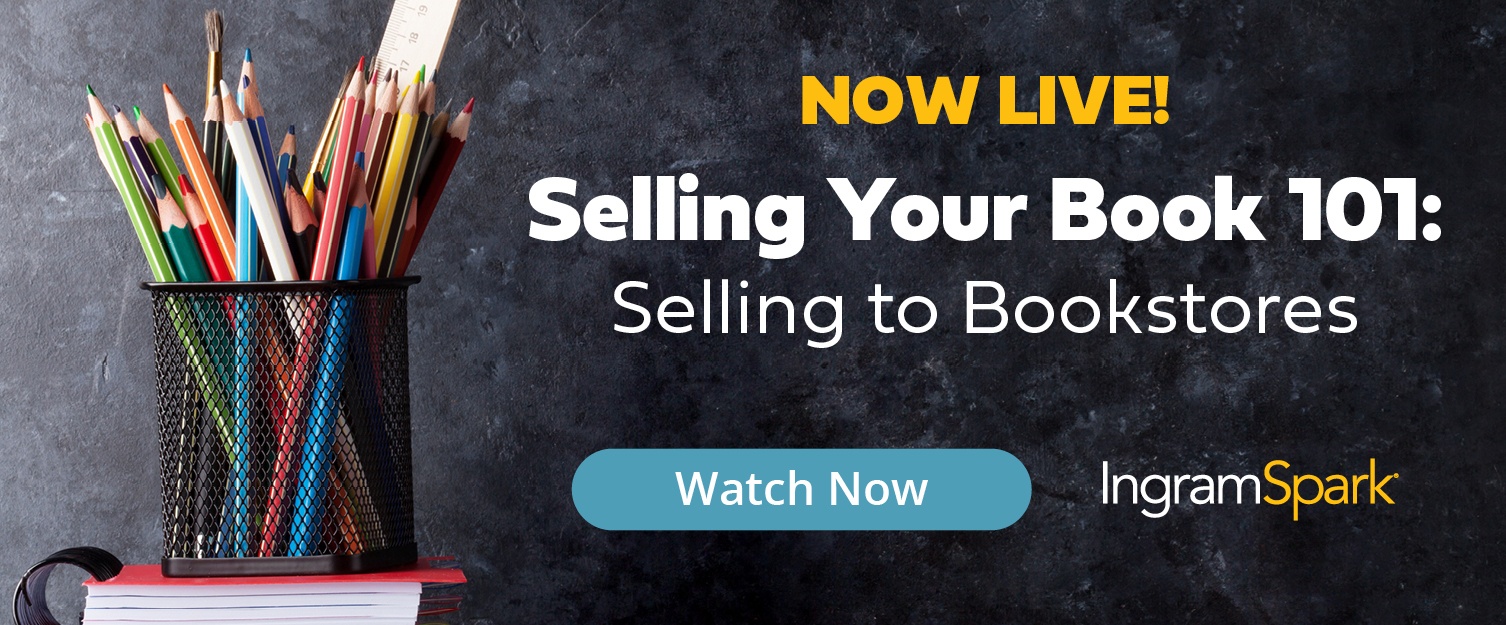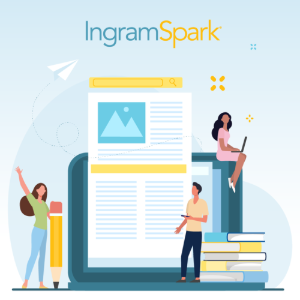In the past, getting independent booksellers to shelve self-published books was a difficult prospect. Indie booksellers were reluctant to sell self-published books, based on the old bias that self-published meant poor content or poor quality. But that was then and this is now. Not only have self-published authors upped their game when it comes to content, but the quality of self-published books is highly competitive with those of traditionally published books. So just how do you go about selling your book to independent bookstores?
Much as writing books is a passion and business for authors, selling books is a passion and the only business for independent booksellers. And while independent bookstores are known for being wonderful community gathering places with staff that genuinely care about the book industry, that doesn’t mean they can do it all for the love. They still need to sell books. Everyone has to make a living in this business, and this is what independent booksellers need for you and your book in order for both you and them to succeed in selling it.
Know Your Audience
1. Booksellers do not want to hear about your success at Amazon.com!
It's great to have success on Amazon, whether as a traditionally published author or self-published author, but consider the fact that indie bookstores have to compete with them before you brag about how well your book is selling there; it won't help you get your book in your local independent bookstore. In fact, Amazon is their biggest competitor, which is one-way IngramSpark’s self-publishing platform is uniquely positioned to help indie authors achieve more success in this particular retail market. Independent booksellers reject stocking books published via Amazon KDP because their sales of those titles ultimately profit their biggest competitor.
2. Be a good customer.
Don’t just know a store exists via Google searches. Actually, know them. Cultivate relationships with indie booksellers by purchasing books from their stores and encouraging your friends, family, and fans to do so as well. It makes sense to support your local independent bookstore before you ask them to support you. It's one way to be a good literary citizen—and it's good business, too.
Independent bookstores have become more than just a place to buy a book; they are constantly evolving. Indie bookstores are community hotspots—supporting the local community, creating publishing programs, publishing and selling their own unique content, and hosting author events. When pitching your book to an indie bookseller, consider the unique ways your book ties into supporting the bookstore and the community. Your support of them will make them more likely to support you.
Before you approach a bookstore owner, research his or her background. Get a feel for the shop’s customers and the types of books the store typically promotes and sells. Take a look at the store’s social media accounts and see what kinds of author events they typically host. When you meet with the owner, use this information in your pitch. If they have a certain type of customer that will be interested in your book, mention it.
3. Know a store's demographic.
A bookstore owner wants to make sure your book aligns with their customers. Niche bookstores may only carry a certain genre. Know your genre and your target reader. Be able to accurately and concisely explain what your book is about. That way, you and the bookstore will have a better idea if it fits with their readership.
Spend enough time at the store you're targeting to understand who their customers are. Their readers won't be your readers if your readers don't shop at that kind of bookstore. Familiarize yourself with their inventory and see if your book fits in. If an indie bookseller does not foresee his/her customers buying your book from their store, he/she is not going to buy it from you.
Discounted and Returnable
If you want your book to flow easily into independent bookstores, then consider the 55% wholesale discount and make it returnable. The book industry is a returnable industry, which means bookstores will expect to be able to return books they don’t sell and get a credit for their return.
Keep in mind that a bookstore is not likely to buy numerous copies from you outright. They want to be sure your book will sell before they take on more than one or two copies. If you're self-published, print-on-demand services are a cost-effective way to get your book out there. A bookstore will be more likely to buy your book if the distributor has return capabilities, such as IngramSpark’s, and if you set bookstore-friendly terms regarding the wholesale discount. Beyond the fact that it's run by their competition, bookstores don't generally take Amazon KDP publications because they don't allow returns.
Quality Product
Bookstores want to be about 90% sure that they can sell a book before they buy it, so that means that you have to give the bookstore a quality product. Something that stands out qualitatively and fits in beautifully genre-wise.
Easily Shelved
Your book needs to be easily shelved by the bookstore. Booksellers don’t want something that looks or sounds so unusual that no one knows where to put it. So if you have the idea that your book is completely unique and there is nothing like it out there in the universe, you need to visit a lot of stores and libraries and go online and figure out what people will be looking for when they discover your book.
It's one of your jobs as a self-publisher to figure out how people will actually discover your book, and if your book is labeled or packaged so uniquely that the bookstore doesn’t know where to put it on the shelf, then you’re just creating difficulty for yourself. Booksellers aren't interested in books that stick out for the wrong reasons. Visit your local bookstore and take note of the trim sizes, book cover imagery, and interiors. Your book doesn’t need to look like a clone of everyone else’s, but if you notice themes for certain genres, stick with them, because they most likely represent industry standards for a particular genre that shouldn’t be tinkered with.
Appropriate Retail Price
Make sure your book has an appropriate retail price. There are some books that are more manuals and textbooks where you won’t be printing very many or there is such a specific demand for them they’re what some people call a destination book and you can charge a premium price for them. There are others that might be more mind candy or fluff or impulse buy and those would have a lower price. This is where your market research comes in. You want your book to fit into its category and stand out qualitatively so that the end buyer doesn’t end up with sticker shock. “Oh, all these other textbooks are $48.95, and here’s one that’s $9.95. Huh, it might not be very good.” Make sure you do your research to find out with which titles yours could most closely be compared.
Easy Ordering
Having your book available via IngramSpark will be of great comfort to booksellers. Ingram is well-respected within the book industry and a reliable resource to booksellers when it comes to someone supplying them with books.
A bookseller won't want to deal with inconvenient distribution. When they work with distributors, they can order, sell, and invoice books in bulk. But working with indie authors means they have to do all of this individually with each author. Using a reputable distributor for your book will be more convenient for the bookstore, and the easier you make it for an indie bookstore to sell your book, the more likely they are to be willing to try.
Publisher/Author Support on the Book Sale
What booksellers are looking for is what kind of publisher/author support they’re going to get from you for the sell-through. There are thousands of stores and outlets in this country, so what is going to draw an individual to a particular store to look for your particular book?
It's the bookstore's job to sell your book, not market it. Busy bookstores may be approached by authors often, and they are inundated with consignment offers on any given day. You will be expected to fulfill your end of the bargain in the form of marketing. The bookstore wants your book to sell, but don't expect the store to do the legwork for you. Have a solid marketing plan in place, and let the bookstore owner know what it is. It will show them that you take initiative and have confidence that your book will sell.
If you want your book to sell at a specific store, start a grassroots book marketing campaign to make it happen. Have your friends and family who live and/or shop near the store request copies of your book. Have them stagger their requests so your book establishes a consistent sales record. When you approach that store to ask if they'll stock your book, management will be more likely to say, "Yes!" if they've already sold some copies of it.
Create an Author Page on Bookshop.org
Your author website, advertising, and marketing materials may direct readers to Amazon.com and Barnes & Noble, but you should also set up an author page on Bookshop.org. Bookshop.org supports independent bookstores by donating their profits to a local bookstore of your choosing. By allowing your books to be purchased through Bookshop.org, you are showing your support for independent bookstores and the role they play in local communities. You can also use your author page to generate a mailing list of readers and have a better understanding of where they are located.
You might have more luck locally and regionally. Some local indie bookstores will just want to buy from you on a consignment basis because that might be easier for them. Some of them might want to do an event first to test the waters. But ultimately booksellers want to know what kind of buzz you’re going to generate to help achieve the sell-through. Think of bookstores as restaurants. If you owned a small restaurant you'd have to keep turning those tables during your dinner service so that you could make enough money to keep your doors open. Much like you can't just have one customer take up a table for hours on end, you also can’t just park a book in a bookstore. You need to not only help it get onto the shelves with the tips above, but you also need to help it get back off them and into the arms of a paying bookstore customer.
Plan your strategy for selling your book to independent bookstores ahead of time, and start by frequenting those stores. Know what they're selling and to whom, and see if your book is a good fit for each store you approach. If indie bookstores are a sales channel you’re interested in pursuing for your book, utilize these tips, and self-publish your books with IngramSpark.













